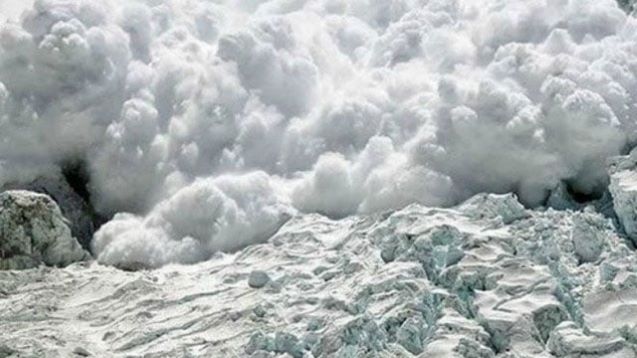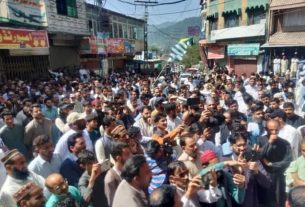Along with random construction, deforestation and development on agricultural land are linked to the high influx of tourists, contributing to making Gilgit Baltistan disaster-prone
Wajhullah Fahim
Today, the world is categorised into many groups such as developed nations, developing nations, under-developed nations, the American bloc, and the Chinese bloc. But some issues are faced globally, among them is a disaster-prone world and climate change. Now, everyone on this planet is highly vulnerable to natural disasters and climate change. Most of us consider developed nations to be the main culprits of making our planet disaster-prone and climate change. However, as citizens, we have some responsibilities, and we are not performing them, which also contributes to making our homes disaster-prone.
The north of Pakistan, Gilgit Baltistan, is famous for its unmatchable natural scenery, but this area is now become highly vulnerable to disaster events. Disasters like glacial lake outburst flood (GLOF), flash floods, land sliding, earthquakes and river erosion are the most common disaster events in every place of Gilgit Baltistan.
Traditional cooking and heating systems also contribute to the vulnerability of GB.
In most parts of GB, people use wood for cooking and heating
In recent years, due to government policies and improvements in the law-and-order situation of Gilgit Baltistan, a large number of tourists have begun visiting the region to spend their vacations. This unpredicted increase in tourist influx has led many people to adopt tourism and the hospitality sector as their main source of income. As a result, rest houses, guest houses, hotels, and restaurants are being constructed indiscriminately. During this construction boom, proper land use strategies and building codes are often ignored. To attract more tourists and create unique locations, many guest houses and hotels are being built near mountains and rivers. However, such sites are highly prone to destruction with even slight temperature changes. Along with random construction, deforestation and the development on agricultural land are linked to the high influx of tourists, contributing to making Gilgit Baltistan (GB) disaster-prone. Furthermore, the extensive use of electric generators is also associated with the high number of tourists. For power generation at tourist spots and in most guest houses, hotels, and restaurants, generators are used extensively, becoming a significant factor in disaster vulnerability.
Traditional cooking and heating systems also contribute to the vulnerability of GB. In most parts of GB, people use wood for cooking and heating. This practice not only contributes to deforestation but also produces Green House Gases (GHG) as a byproduct. Due to the unavailability of Sui gas and the high price of LPG, people resort to using wood. Reforestation activities should be encouraged alongside deforestation, but currently, the focus is mainly on deforestation in GB.
Nearly every household in GB owns a vehicle for personal and family use, making the concept of public transportation rare. Most vehicles do not meet international standards, and their excessive use is a significant contributor to greenhouse gas (GHG) emissions, further exacerbating the region’s disaster-prone status.
In the two main cities of GB, Gilgit and Skardu, waste management authorities have been established for proper waste collection and disposal. However, these authorities lack sufficient human resources and machinery. The lack of coordination between tourists, local communities, and waste management authorities is a major concern for disaster-prone GB. Despite the presence of waste-bin facilities in most places, the insufficient support from tourists and local communities contributes to the region’s vulnerability.
It is now imperative for local communities and residents to understand their responsibilities and contribute positively to the region’s sustainability. The government of GB needs to take serious steps in this regard. The Gilgit Baltistan Disaster Management Authority (GBDMA) should be empowered to effectively implement disaster-resilient measures in GB. The government of GB should authorise GBDMA to conduct vulnerability assessments before any construction, and without their approval, construction activities should be completely banned.
Awareness campaigns about disasters should be organised periodically in local communities. Along with government authorities, international organisations such as UNDP, WWF, and village-based organisations should collaborate to arrange awareness campaigns at the village level. A pricing mechanism can be implemented, where most tourists using their own vehicles to travel to GB are taxed for using the Karakoram Highway (KKH) and Baltistan Highway. Such interventions will discourage tourists from using personal vehicles, potentially leading them to opt for public transportation. These measures will yield positive results only if local communities fulfill their responsibilities.__Courtesy The Friday Times Pakistan





